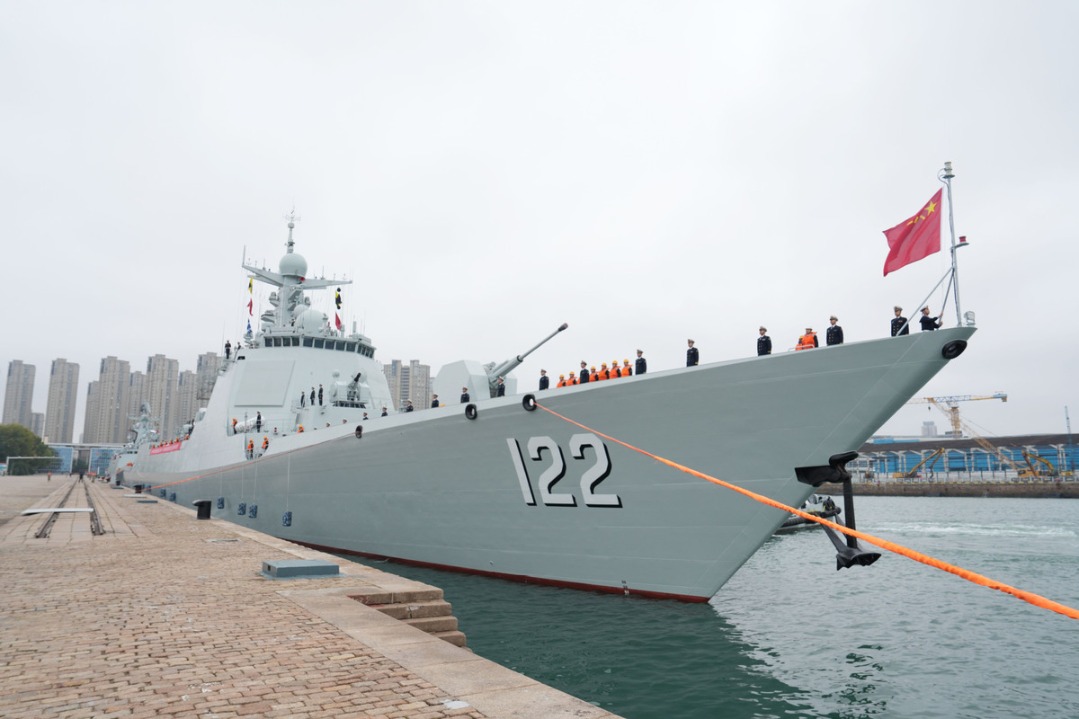China defends export controls on rare earths
Ministry says nation 'not afraid' after US' threat to impose 100 percent tariff





China's latest step to tighten export controls on rare earths and related items will bolster global supply-chain security and ensure trade compliance, rather than curb exports, government officials and analysts said on Sunday.
Against a backdrop of global instability and frequent conflicts, they noted the important military applications of medium and heavy rare earths and related materials. As a responsible major country, China applies export controls in accordance with the law to uphold peace and stability and support nonproliferation.
China on Thursday imposed export control measures on technologies related to rare earths, with immediate effect. It also issued new notices the same day implementing export controls on items linked to superhard materials, rare earth equipment and materials, and batteries.
In a follow-up statement on Sunday, the Ministry of Commerce defended the country's export control measures on rare earths and related items as legitimate, while urging the United States to manage differences properly through dialogue based on mutual respect and equal-footed consultation.
A ministry spokesperson said that China's export controls are not export bans and that licenses will be granted for eligible applications.
"China stands ready to work with international partners to strengthen dialogue and exchanges on export control to better safeguard the security and stability of global industrial and supply chains," the spokesperson said.
Echoing the call for continued dialogue, Jens Eskelund, president of the European Union Chamber of Commerce in China, said the chamber will work with the country to maintain communication with trade partners on the issue and continue facilitating rare earth exports to European companies.
China's cumulative rare earth exports reached 44,355 metric tons in the first eight months of 2025, up 14.5 percent year-on-year, according to data from the General Administration of Customs.
China is the world's key processor of rare earths and a major supplier of advanced graphite. That position gives it both the responsibility and the incentive to keep export flows compliant, said Ding Rijia, a professor of economics at the China University of Mining and Technology-Beijing.
Similar views were expressed by Zhou Mi, a senior researcher at the Chinese Academy of International Trade and Economic Cooperation.
"Before China implemented its export control system, international trade in rare earth resources had long lacked effective management, and China's moves have, to a certain extent, reshaped the global trade landscape," Zhou said.
"The export controls have indeed increased compliance pressure for some Western entities involved in the military sector, which could help reduce global military risks," he added.
Rare earths refer to 17 elements widely used in high-tech products ranging from smartphones and flat-screen televisions to wind turbines and fighter jets.
The White House said on Friday that it would impose an additional 100 percent tariff on imports from China and introduce export controls on all critical US-made software from November.
The Ministry of Commerce said the US' actions have severely harmed China's interests and undermined the atmosphere for bilateral economic and trade dialogue.
"Willful threats of high tariffs are not the right way to get along with China. China's position on the trade war is consistent: We do not want it, but we are not afraid of it," the ministry spokesperson said.
Chen Wenling, former chief economist at the China Center for International Economic Exchanges, said the lack of a more "constructive" economic strategy beyond tariff threats and investment restrictions reflects a broader dilemma in Washington's policy toward Beijing.
"With limited options, the US has repeatedly turned to the same protectionist tools, despite their disruptive effects on the US itself and on international trade norms at large," Chen said.
She added that the repeated US shifts on tariffs and other restrictive policies — from escalation to temporary suspension and back again — have made it difficult to establish a stable foundation for a long-term agreement between the world's two largest economies.
Lu Minglang, chairman of Ningbo Merryart Glow-Tech Co, a toy manufacturer based in Ningbo, Zhejiang province, said his US partners have repeatedly told him in recent months: "Policies are unstable — we can't build inventory right now."
"We have been diverting resources from high-value research and development to coping with tariff fluctuations and logistics snags," Lu said, stressing that a healthier China-US trade relationship would unshackle companies on both sides and accelerate cooperation.
Contact the writers at zhongnan@chinadaily.com.cn

































